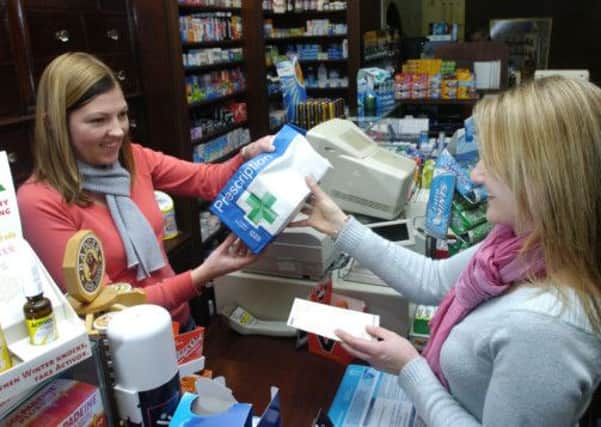Health of our nation deserves real care


Health inequality is not just a problem for those living in our most deprived areas. It is a problem for us all, and one which those of us working in the health sector have a duty to address.
Health inequality is another indicator used to judge the wellbeing, or otherwise, of a nation. Unfortunately, it is one against which Scotland performs poorly. The differences in life expectancy between the wealthy in our society and the most deprived, are intolerably high. However, everyone in Scotland suffers from Health Inequalities. Even the most affluent in our society, when compared to their English counterparts are more likely to suffer from ill health. It’s everyone’s problem but what are the solutions?
Advertisement
Hide AdAdvertisement
Hide AdWe have not always been in this position. 60 years ago Scotland had a favourable mortality rate when compared to other western European countries. Although our life expectancy has risen, every other western European country has improved faster to leave us lagging behind. Societal issues can be addressed but this is a long-term goal. Many need help now and community pharmacy can play a significant role.
Audit Scotland recognised that community pharmacies are more likely to be in deprived areas than GP surgeries. This is a good start but being there is not enough. Our services must be accessible and universal to make an impact. A good example is the abolition of prescription charges. A universal benefit which results in the removal of a barrier to good health is always likely to have a bigger impact on inequalities. Targeting support such as the Chronic Medication Service to those with long-term illness can also make a difference. Serial prescribing, where the patient’s prescription is sent directly to the pharmacy removes a potential barrier and hence is likely to reduce ill health.
The access offered by pharmacy can be key to opening up NHS services. Flu vaccine uptake for at risk under-65’s continues to fall below Scottish Government targets.
If NHS was to offer the service through community pharmacy we remove appointment barriers, potentially increase uptake and reduce ill health. We have seen how opening up access to smoking cessation services as part of the core pharmacy contract has aided the Scottish Government to meet its target to increase the number of smokers quitting.
Measures raising the cost and reducing the appeal of the causes of ill health are also effective.
Increasing the cost of tobacco encourages smokers to quit and crucially reduces the appeal to those who may start. Plain packaging of cigarettes is also likely to reduce their attractiveness and hence reduce health inequalities. Minimum pricing of alcohol should produce public health benefits.
Starting young to prevent ill health is also effective. Measures such as healthy start vitamins for children may have a positive impact but the barrier of requiring a voucher from a midwife or health visitor will reduce the benefits. The proposals for fortification of flour with folic acid will be more effective. Providing free school meals for all children up to Primary 3 is also a positive step.
Interestingly public health campaigns may not reduce inequalities as we might expect. A poster campaign or written educational material is more likely to be acted upon by the more affluent in society.
Advertisement
Hide AdAdvertisement
Hide AdAlthough it may improve the health of those who respond to the message, ultimately the gap between their health outcomes and those who have not engaged will increase. Any intervention requiring a financial outlay for the patient will also likely increase the gap between those on high and low incomes.
The current age of austerity has led some politicians to question the need for universal measures such as free prescriptions. It is true that many of us can afford to pay a prescription charge.
The key factor is that those who can afford to pay will access the NHS whether it is free or not. Charging to treat ill health has a bigger impact on those who need the services the most. Our political leaders need to take action and implement policies to reduce inequality in all aspects of society.
Currently in Scotland many of our patients are subject to the suffering of ill health and early death through poverty and deprivation. The NHS can make an impact but ultimately our political leaders must address the societal issues to improve health for everyone.
• Harry McQuillan is chief executive of Community Pharmacy Scotland www.communitypharmacyscotland.org.uk